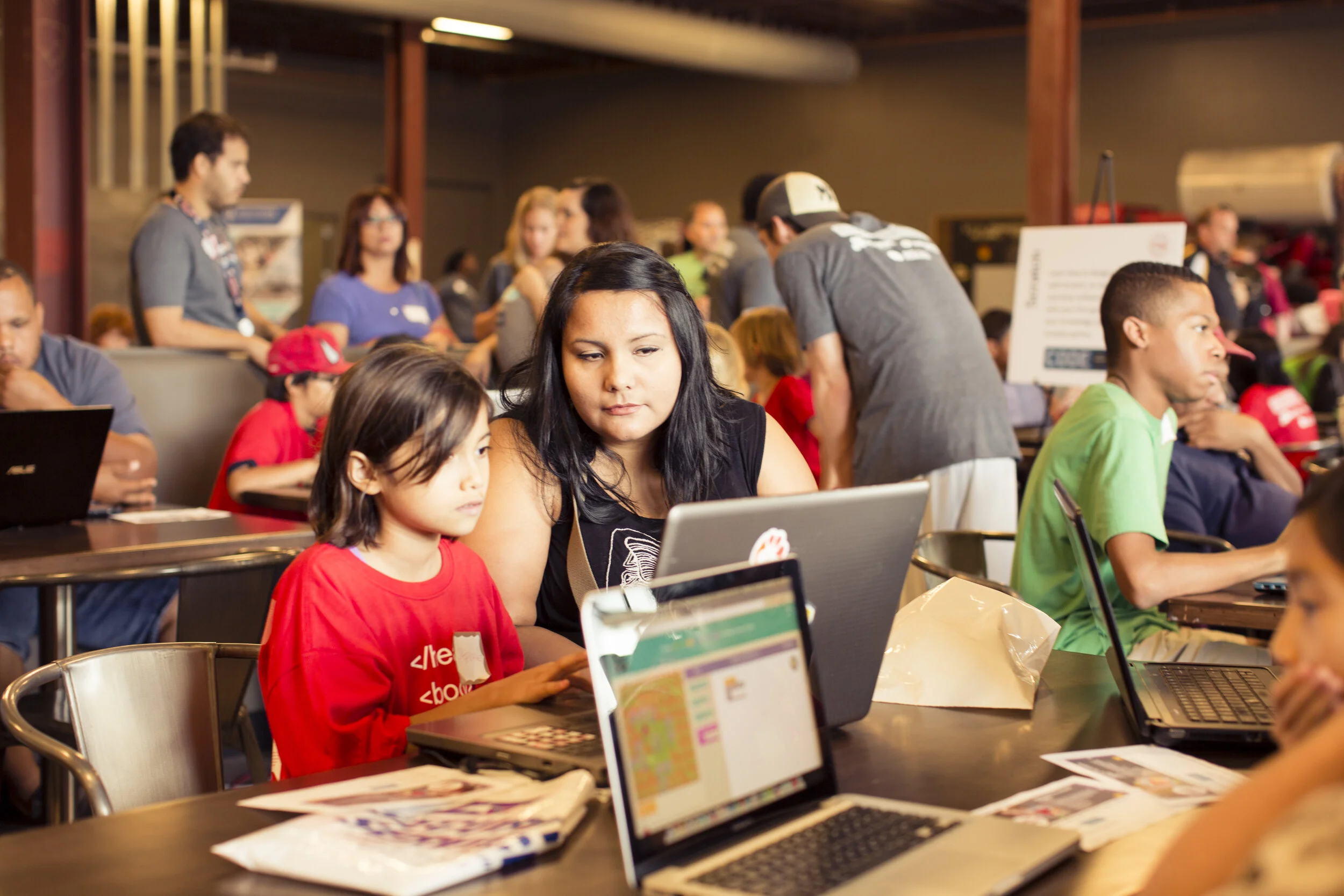As mentioned in another post, it takes more knowing how to code to be a strong programmer. In addition to developing their digital literacy skills (i.e.: typing, using a variety of devices, cyber ethics, etc.), young computer programmers need to develop their computational thinking skills.
Computational thinking is the ability to solve complex problems across disciplines and with a variety of tools. When students take traditional coding lessons, they will be told that programming is just solving a problem and the programming language is just a tool. While understanding all the rules and syntax of a specific programming language is necessary, it is just as necessary to understand the logic of using the code to solve problems.
Part of learning programming logic is developing one’s computational thinking skills, as these are practically a foundation for coding skills.
Computational thinking is broken down into four components: decomposition, pattern recognition, abstraction, and algorithms.
- Decomposition: This is the process of breaking up a complex problem into smaller and more manageable parts.
- Pattern recognition: The ability to find similarities within a problem and among multiple problems.
- Abstraction: Learning to focus on only the most important parts of a problem.
- Algorithms: Learning how to follow or develop a step-by-step process solution.
There are a lot of ways to introduce these concepts to students. Obviously, coding programs can help students to learn them, but there are other ways, too. Our after-school Bits ‘n Bytes program offers a Puzzle Club as one of its rotating series, in which attendees learn different strategies to solve common puzzles, such as Sudoku and elimination grids, and how to design programs using pseudocode.
While computational thinking makes students (and adults) stronger programmers, it also helps people to be strong problem solvers (in all kinds of situations), innovative, and creative. If you’d like to learn more about computational thinking, you can check out this introduction lesson from the BBC, or register your young learner for one of our after-school programs.

